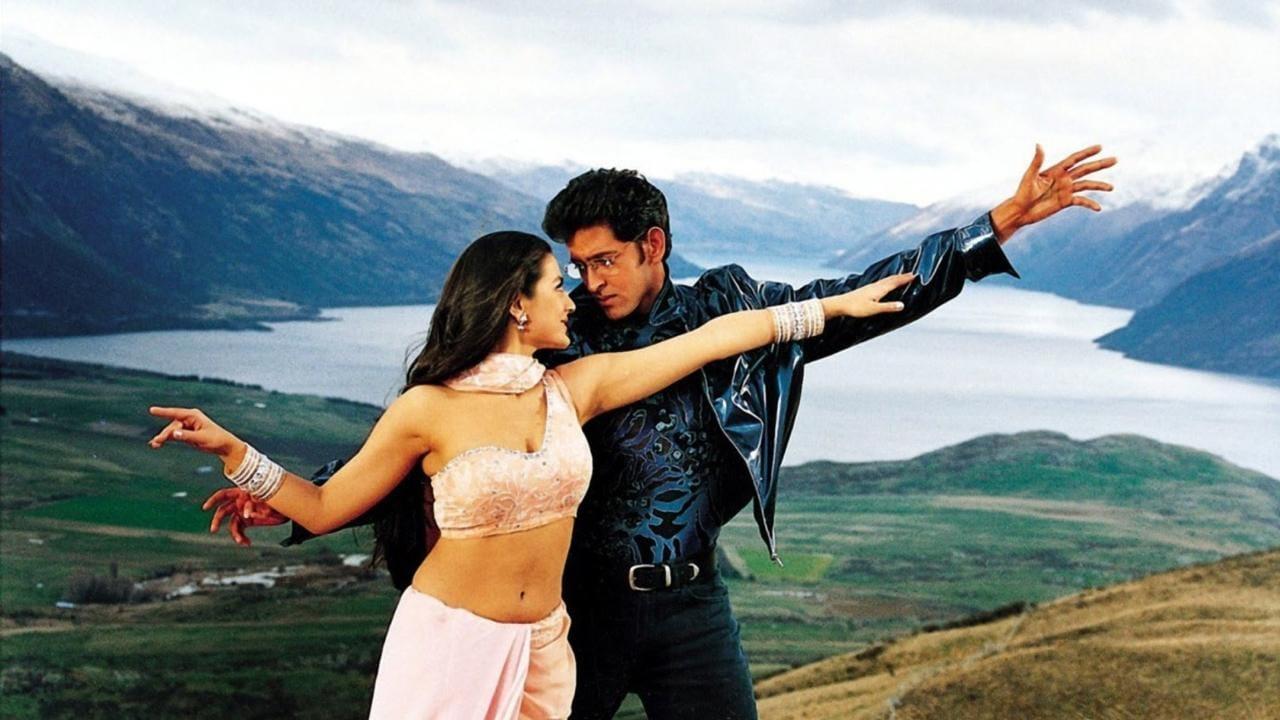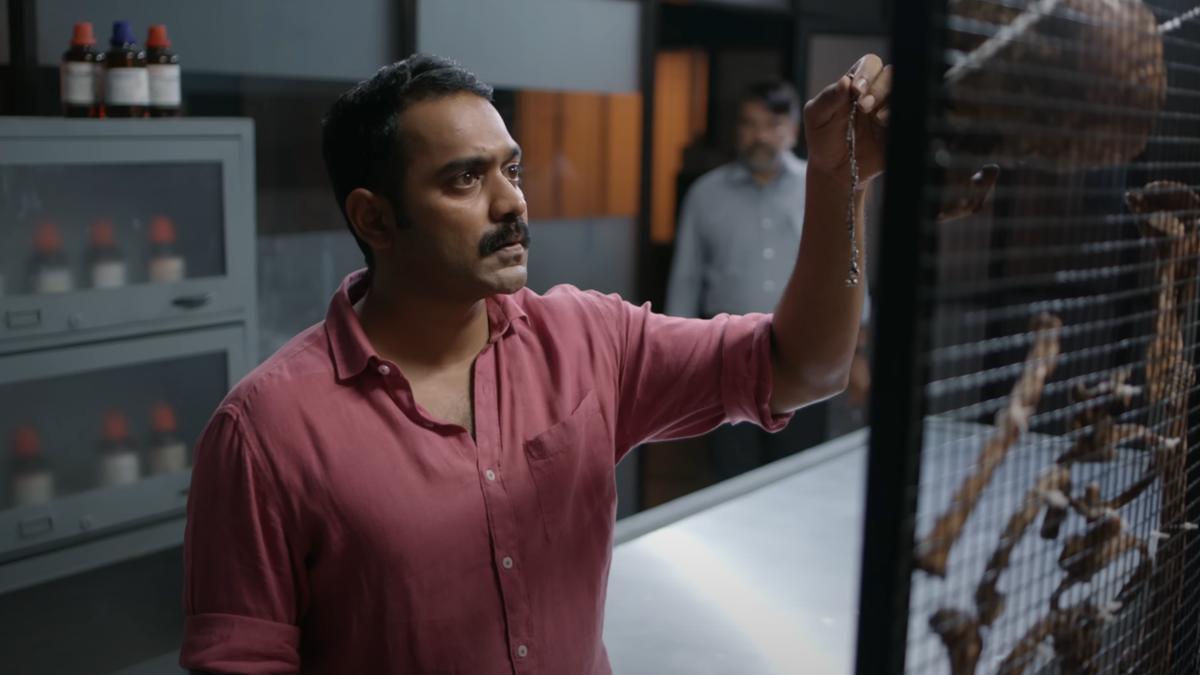
Kunuji Kulusika crouched over a silver plate filled with an assortment of seeds, meticulously arranged into small piles. Naming each one with evident pride, Kunuji’s broad smile conveyed her satisfaction. The collection included a dozen types of seeds such as beans, small beans, horse gram, pigeon peas, mustard, corn, and niger seeds. “These are seeds we have always grown,” Kunuji said in Seed Stories, a recently released documentary directed by Chitrangada Choudhury. “A bit of this, a bit of that… many different things… that is how we farm,” added Kunuji, an indigenous agroecological farmer residing in the Niyamgiri mountains of Odisha’s Eastern Ghats. “Why should we go to the market for seeds?”
Seed Stories, which was shown at the National Centre for Biological Sciences (NCBS) in collaboration with the Bengaluru Sustainability Forum (BSF), is part of Climate Charche, a series curated by BSF. The series aims to explore the interlinkages between various aspects of climate change and urban systems. Its concept note outlines the goal: dialogues, deliberations, and learning across different audience groups to exchange knowledge and identify gaps in city-level plans, emphasizing adaptation, resilience, and climate justice.
Chitrangada Choudhury, an award-winning journalist and researcher from Goa, and her team delve into the crucial efforts led by barefoot ecologist Dr. Debal Deb to conserve over 1,000 endangered heirloom varieties of rice. These varieties face the threat of extinction from the invasive spread of genetically modified cotton seeds and the toxic chemicals required to cultivate them. The documentary offers a “worm’s eye view” of this agricultural transformation, revealing the deep-seated agroecological knowledge of the local people and the subsequent shifts in their farming practices, attitudes toward food, and ecological values. It also prompts viewers to reconsider the true meaning of sustainability.
Choudhury has been committed to this subject for nearly two decades. Though originally from Orissa, she spent the early years of her career in Mumbai and Delhi, reporting on areas with significant Scheduled Tribe populations, such as parts of Chhattisgarh, Jharkhand, and Orissa. Her work frequently highlights how mainstream development often results in violence against these communities, justified in the name of national progress. Indigenous communities are often stigmatized as backward in mainstream policy and media narratives to rationalize this violence, she argues.
Choudhury first met Dr. Deb in 2014 while profiling him for a national daily.
. Dr. Deb criticizes what he calls the ‘develop-mentality’—a relentless cycle of inputs, outputs, consumption, and waste on a finite planet. Choudhury and her associate director, Aniket Aga, started volunteering at Deb’s Basudha farm in Odisha’s Rayagada district in 2018. This biodiverse region houses immense local knowledge about sustaining biodiversity and maintaining food sovereignty, a knowledge rapidly disappearing from more ‘developed’ parts of India.
The film documents the dramatic shift towards an agriculture heavily reliant on chemical inputs and monoculture, particularly cotton, which severely endangers traditional farming practices that span millennia. Cotton’s demand for copious inputs threatens to eliminate the long-standing poly-cropping systems; this perceived ‘progress’ comes at the cost of a rich agroecological heritage. The loss of indigenous seeds signifies a broader erasure of these communities’ ability to sustain themselves ecologically.
Choudhury’s desire to visually document these changes emerged spontaneously as she observed the critical impacts of cotton agriculture on traditional practices. She describes this transformation as a slow and insidious form of violence, plot by plot, farm by farm, chaining locals to global cotton supply chains under uncertain terms. Dr. Deb echoes this sentiment in the film, emphasizing that cotton, in any form, is unsuitable for this landscape. Once communities lose their seeds, reclaiming the ecological resources that have historically sustained them will be extraordinarily difficult.
The aesthetics of Seed Stories, with its captivating visuals of cloud-clad mountains, lush rice fields, and azure skies, encapsulates both the region’s rich biodiversity and the creeping changes threatening it. Close-up shots of colorful seeds, scarlet bugs on cotton bolls, ants, a spider nestling in its web, and herbicide bottles juxtapose with broader shots of trains, grazing cattle, burning forests, and cotton-studded fields. These images are not just artistic but serve to underscore the narrative of environmental and cultural shifts.
Filming largely spanned from 2019 to 2022, timed to document specific parts of the agricultural season such as sowing and harvesting. This slow, ethnographic approach helped Choudhury and Aga build a rapport with the local people. They worked closely with Chhattisgarh-based filmmaker and human rights activist Ajay T.G. The project was primarily self-funded with some grants from the Wenner-Gren Foundation and the Centre for Climate Change and Sustainability (3CS) at Ashoka University.
An early cut of Seed Stories premiered at the Kolkata People’s Film Festival in January 2024 and has since been screened at various national and international festivals including the Chennai International Documentary & Short Film Festival, Festival delle Terre in Rome, and several other independent venues. The film has also been selected for the All Things Living Environmental Film Festival (ALT EFF) taking place in November. Choudhury hopes to make Seed Stories publicly available after the festival circuit to reach as many audiences as possible, including educational institutions, environmental groups, civil society organizations, and indigenous rights groups.
To learn more about Seed Stories, visit https://www.ourcinema.in/festival/film/seed-stories/










